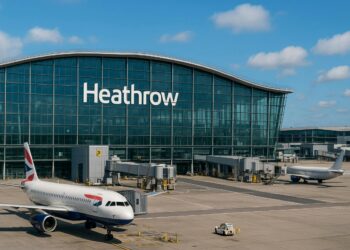Nigeria Short-Let Investment: The short-let rental market in Nigeria has gained significant traction over the past few years. With the rise of business tourism, digital nomads, and an increasing number of Nigerians in the diaspora seeking comfortable short stays when visiting home, short-term rentals have become a booming segment of the real estate industry.
Unlike traditional rentals, short-let properties offer investors higher returns due to flexible pricing, increased demand, and premium rental rates. However, investing in this market requires careful planning, knowledge of the best locations, and effective property management—especially for those in the diaspora.
This guide provides an in-depth breakdown of how to successfully invest in Nigeria’s short-let market, including the best strategies, locations, property types, management options, risks, and expected returns.
How to Invest in Nigeria’s Short-Let Market
Investing in short-let properties involves more than just purchasing a house and listing it online. Here’s how to make a strategic investment:
Research the Market Before Investing
Before diving into the short-let business, conduct thorough market research to understand:
- Demand trends: Is there a steady demand for short-term rentals in your preferred location?
- Target audience: Who are your potential renters—business travelers, expatriates, tourists, or returning Nigerians in the diaspora?
- Seasonality impact: Are there peak periods when demand surges, such as holidays or business events?
- Government regulations: Are there restrictions or taxes on short-let properties in your chosen area?
Websites like Airbnb and Booking.com provide insights into occupancy rates, pricing trends, and competition in different areas.
Choosing the Best Locations for Short-Let Investment
Not all locations in Nigeria are suitable for short-term rentals. The best areas for high occupancy rates and premium rental income include:
Lagos: The #1 Hotspot
Lagos is Nigeria’s commercial capital and has the highest demand for short-lets. Ideal areas include:
- Victoria Island (VI) – Business executives, expatriates, and tourists drive high demand.
- Ikoyi – Premium neighborhood with luxury apartments in Banana Island and Bourdillon Road.
- Lekki Phase 1 – Popular with young professionals and short-term visitors.
- Ikeja GRA – Proximity to the airport makes it ideal for business travelers.
Abuja: Nigeria’s Political Capital
As Nigeria’s capital city, Abuja attracts government officials, diplomats, and business travelers. Best locations include:
- Maitama – Luxury properties with elite clientele.
- Wuse 2 – High demand due to central location.
- Gwarinpa – Affordable properties with growing short-let demand.
Other Emerging Markets
- Port Harcourt – Business and oil-related travel fuel demand.
- Ibadan – A growing market due to corporate events and affordable living.
- Enugu & Asaba – Increasing demand from returning diaspora visitors.
Selecting the Right Property Type
Short-let investments require properties that align with tenant expectations. Consider:
- Luxury apartments & serviced flats – High demand among expatriates and business travelers.
- Standalone duplexes & villas – Ideal for families or long-term stays.
- Studio apartments – Popular among solo travelers and digital nomads.
- Short-let hotel apartments – Operate like boutique hotels for consistent income.
Ensure the property is in a secure environment, has modern amenities, and offers easy accessibility to business districts, shopping centers, and entertainment hubs.
Managing Your Short-Let Property: A Guide for Investors in the Diaspora
Many Nigerians abroad invest in short-let properties but struggle with day-to-day management. Here are solutions:
Hiring a Professional Property Manager
A property management company handles:
- Guest check-ins and check-outs
- Cleaning and maintenance
- Marketing and listing optimization
- Pricing adjustments based on demand
Reliable property managers can be found on Landbrok.com, Privateproperty.com.ng, Nigeriapropertycenter.com, PropertyPro.ng or via real estate firms specializing in short-lets.
Listing on Multiple Platforms
Maximize bookings by listing your property on multiple platforms:
- Landbrok.com – Nigeria’s most trusted property martketplace
- Airbnb – The most popular short-let marketplace.
- Booking.com – Ideal for attracting international travelers.
Automating Operations
- Smart locks & keyless entry allow guests to check in remotely.
- Automated pricing tools adjust rates based on demand.
- Security cameras (without invading privacy) improve safety.
Realities vs. Speculations in Nigeria’s Short-Let Market
There’s a lot of hype around the short-let market, but here’s what investors should know:
Market Realities
✅ High ROI potential – Short-let properties can earn 2-3x more than traditional rentals.
✅ Foreign exchange advantage – Many bookings are paid in USD or GBP.
✅ Growing business travel & tourism – Increasing demand in key cities.
Market Speculations & Myths
❌ Short-lets always guarantee profits – It is not true. Location and management determine success.
❌ No legal risks involved – It is not true. Always work with a reliable lawyer.
❌ Anyone can manage a short-let remotely – It is not true. It requires strong local management.
Risks & Returns: What Investors Need to Know
Potential Risks
- Regulatory changes – Some states may introduce short-let taxes or bans.
- Damage to property – Guests may misuse or damage the property.
- Market saturation – Too many short-let listings in one area can reduce occupancy rates.
- Economic downturns – Currency fluctuations can affect profitability.
Expected Returns
- In Lagos & Abuja, a well-managed short-let property can yield 15%-30% annual returns, compared to 5%-8% for long-term rentals.
- Premium properties in Ikoyi & Maitama can generate up to ₦50,000 – ₦150,000 per night.
- ROI is higher in locations with strong demand, proper management, and competitive pricing.
Final Thoughts: Is Investing in Nigeria’s Short-Let Market Worth It?
Investing in short-let properties in Nigeria is a highly profitable venture if done correctly. The key to success lies in choosing the right location, investing in quality property, and implementing proper management. For Nigerians in the diaspora, partnering with a trusted local property manager is crucial to ensuring smooth operations.
Before investing, always conduct market research, analyze risks, and develop a clear strategy to maximize returns.
Are you considering short-let investment in Nigeria? Let us know your thoughts in the comments!













